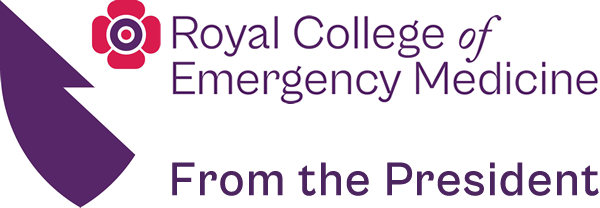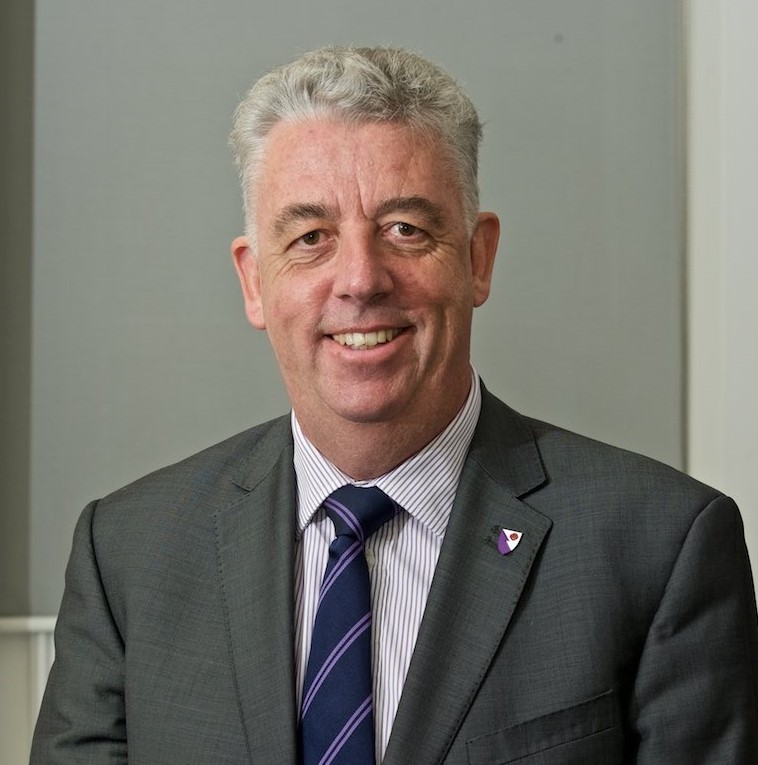Easter is upon us, and as I write this newsletter from the archipelago of small hills surrounded by water that was once the county of Somerset I can only hope that it has stopped raining. My regular train journeys to London now begin with an impressive ride across the Levels with flood waters stretching as far as the eye can see. Perhaps an excuse to visit the Boat Show with a view to purchasing a ‘Presidential Launch’!
The CEM 10 launched last Autumn has been a very effective means of getting our message across to media organisations, politicians and national bodies. Run-through training, recognition of transferable competencies, expansion of ACCS EM posts and investment in overseas recruitment have all been agreed and are being appointed into.
We continue to press the case for co-location of Urgent Care Centres and hope to achieve the support of the RCGP in campaigning to achieve this.
Terms and conditions are acknowledged by the NHS Confederation and the Secretary of State as inequitable for those who work in Emergency Medicine. In discussions with Dr Paul Flynn of the BMA, they too recognise the need for a contract for both trainees and consultants that better recognises the consequences of high frequency and high intensity out of hours work. Our campaign highlighting the absurd sums spent on locums to prop up fragile rotas has demonstrated that we are not arguing for a greater overall spend – indeed the reverse is true. If we had terms and conditions that were equitable, recruitment and retention problems would be overcome, sustainability would return, patient experience and outcomes would improve and overall financial savings would be significant. Properly resourced emergency medicine saves lives and saves money.
The Keogh review continues to progress and importantly it can be a driver for changes in tariffs. The College has been campaigning to highlight that both the acute attendance tariff and the marginal rate tariff for acute admissions are unfit for purpose. After much intransigence some progress has been made with an announcement from the DH that 2009 should no longer be regarded as the relevant baseline and reinforcement of the guidance that the 70% of tariff withheld must be transparently invested in schemes to reduce acute admissions. The Keogh review itself acknowledges that Consultant delivered EM care is the best method of doing this. Importantly Monitor also agree.
The proposed creation of Major Emergency Departments suggested by Keogh would mean some trusts taking on more acute work. This is doomed to lead to financial ruin unless the acute tariff structure is radically altered.
Unsurprisingly one can conclude that finance drives behaviour. It is extraordinary how resistant people and organisations can be to this axiom, unless and until they begin to value the necessary behaviours!
The CEM Spring conference later this month in Cardiff will be an opportunity for many of us to meet and benefit from the knowledge and skills of both presenters and colleagues. Last years event in Glasgow was an outstanding success and many of us are already looking forward to Belfast 2015. The locations highlight that the College is a multinational organisation and endeavours to be of value and relevance to all its members. Key to this is ensuring that the National Boards are fully supported by the College Officers and HQ staff. During this year I hope to reinforce this support. Each National Board is best placed to engage with parliamentarians responsible for and interested in the delivery of healthcare within their own countries. The College can support these activities. Issues of training, education, examinations, service delivery, safer patient care, quality in emergency medicine, informatics, sustainability and the myriad other activities of the College are clearly more generic and do not require complete replication in each country.
I began this newsletter with the CEM10 and I will close with news of its offspring! On March 4th we are hosting a summit of invited organisations and decision makers. This will lead to a summary document building on the CEM10 and provide a manifesto for the College and a roadmap to building a resilient EM system that is safe, effective, efficient and sustainable. This will be published at the end of the Summer and will form the basis of our discussions with all political parties as those of us in the UK approach the next general election in 2015!
Dr Cliff Mann FCEM FRCP
President
The College of Emergency Medicine
@RCEMPresident


